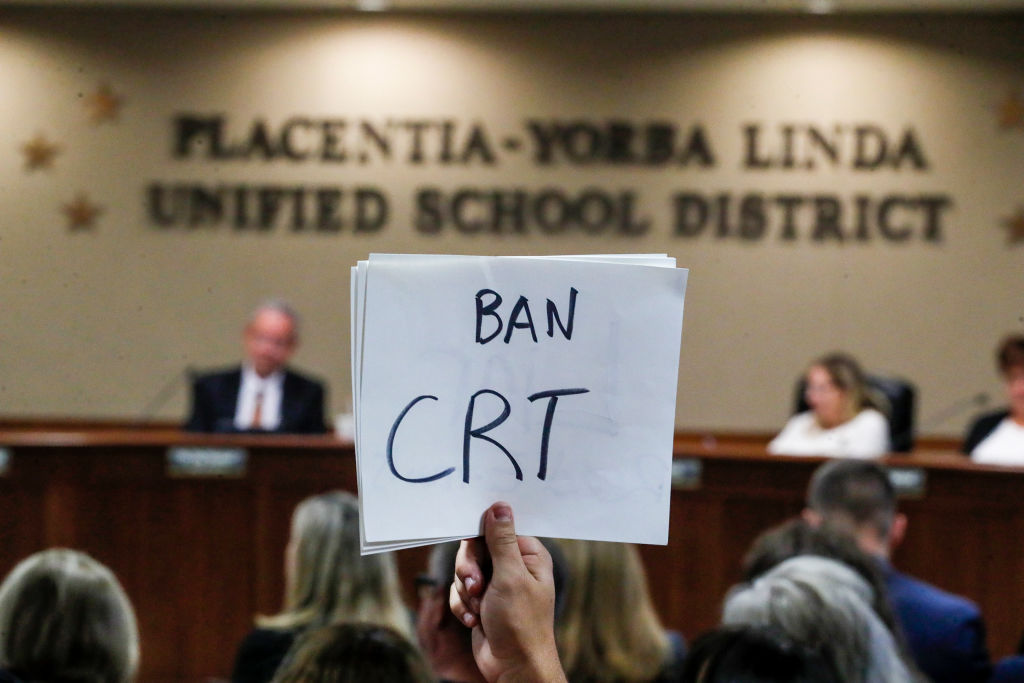Well-meaning Americans are being suckered into an illiberal political cabal.
An Agenda of Liberty

Higher education’s parasitic infrastructure must be eradicated before a healthy system can be established.
Americans must create an entirely new higher education system that is untainted by the corrupt and radicalized education establishment. In Curriculum of Liberty, a new report from the National Association of Scholars, I lay out a comprehensive plan that is in line with that goal.
To start, colleges and universities should institute rigorous and enforceable undergraduate admissions requirements. They have a fundamental responsibility to admit only students who are capable of benefitting from higher education and contributing to the education of their fellow students. Matriculating students should receive high scores on standardized tests, demonstrate an ability to read a 200-page book and write a ten-page paper, and be ready to take introductory classes in Calculus or statistics.
Furthermore, colleges should be required to announce each year what admissions requirements they will impose—and explain publicly why an individual applicant failed to meet those requirements. College cannot be called higher education when a majority of the student body is semi-literate.
Another key aspect is creating a core curriculum that is 40 semester hours in length. Core curricula put in concrete terms what education the college wishes to provide. Hillsdale College’s core curriculum, for example, concisely defines the character of a Hillsdale education. One good version of a core curriculum is the General Education Act, a co-creation of the Civics Alliance, a national coalition I direct that is dedicated to preserving and improving America’s college and universities.
Benefits of establishing a core curriculum include developing an esprit de corps for all students. Perhaps most importantly, instituting a core curriculum creates structural accountability for college education, because it is easier to oversee than distribution requirements for boards, alumni, presidents, and the public.
Colleges also should reinstitute and require students to take 40 semester hours of intermediate courses. Though they have increasingly disappeared from American colleges, these courses provide students an essential foundation of knowledge. History majors need to learn not only Western Civilization I and II but also Greek History, Roman History, Medieval Europe, Early Modern Europe, and Modern Europe. Pre-law students need to learn History of Western Law, Constitutional History of England, and Constitutional History of America.
To create their staffing and course priorities, colleges should use checklists of intermediate courses such as Appendix I provided in Curriculum of Liberty—as, indeed, parents and policymakers should use such checklists to hold colleges accountable for the education they provide. Colleges and universities should ensure that each department’s major and minor requirements include a coherent sequence of intermediate courses. And they should allow students to take 40 semester hours of advanced courses and also courses for pleasure.
Additionally, three particular requirements should be made mandatory that would provide a broader education for character and career preparation. Every student should be required to:
- Teach one K-12 class as a graduation requirement.
- Take four summer sequences of basic combat training (one in the summer before they start classes and three in the ensuing summers).
- Work for one semester in a hospice.
These three requirements together will ensure that colleges teach the importance of caring for the body, the character, and the mind. Students will learn how to accept orders and how to give them. They will be instructed on the use of deadly force and mercy. Above all, they will learn about responsibility—the responsibility of authority, responsibility to country, and responsibility to help others to die as well as they can.
Colleges also should be given an incentive to fulfill their responsibility to maintain public order. They have been undermined not least by the constant ratchet of licensed “protests” and radicalization. Colleges should be required to place ten percent of each student’s tuition into escrow with a reliable third party until the end of each academic year and be required to return that money to the students if they fail to maintain public order—especially if they fail to expel all students who engage in “protests.”
Shearing away the excrescences and malign incentives that have corrupted our system of higher education include:
- Depoliticizing and removing the ability of accrediting organizations to bar colleges and universities from receiving federal money.
- Eliminating student learning outcomes, rubrics, and all other collegiate regulations and bureaucracies devoted to radical advocacy or therapeutic managerialism.
- Lowering tuition to $10,000 a year, the real median price of college tuition in 1970, as well as shrinking administrative bloat and student debt by drastically reducing the number of administrators.
- Replacing lifetime tenure with multi-year contracts.
- Requiring all professors to spend at least a quarter of their time doing administrative work to prevent them from being servants of administrators.
- Spinning off distracting enterprises such as sports and scientific research, which transform colleges from seeking education to seeking money.
- Overturning Griggs v. Duke Power Co., which turned colleges into exorbitantly expensive proxies for an IQ test and drove millions of students into colleges because they had to attend to get a middle-class job.
Americans once created a glorious higher education system. We can do so again and re-acquaint students with Madison and Grant, Audubon and Dickinson, Ovid and Palestrina. The harder task is to create a system that will resist the generations of decay that have rotted out our colleges and universities—and will ensure that not only our children learn about Madison’s thought but also their children and their grandchildren.
No human system can be entirely self-executing. But a higher education system designed to provide oversight and accountability like the one I sketched out above should long endure.
The American Mind presents a range of perspectives. Views are writers’ own and do not necessarily represent those of The Claremont Institute.
The American Mind is a publication of the Claremont Institute, a non-profit 501(c)(3) organization, dedicated to restoring the principles of the American Founding to their rightful, preeminent authority in our national life. Interested in supporting our work? Gifts to the Claremont Institute are tax-deductible.
A new project lays bare the use of public funds to promote hateful discourse.
Training policy personnel is crucial in mounting a counter-offensive.
Taxing universities is key to solving our student debt mess.
The Fairness in Higher Education Accreditation Act attacks wokeness at its core.
A bold plan for education reformers.






